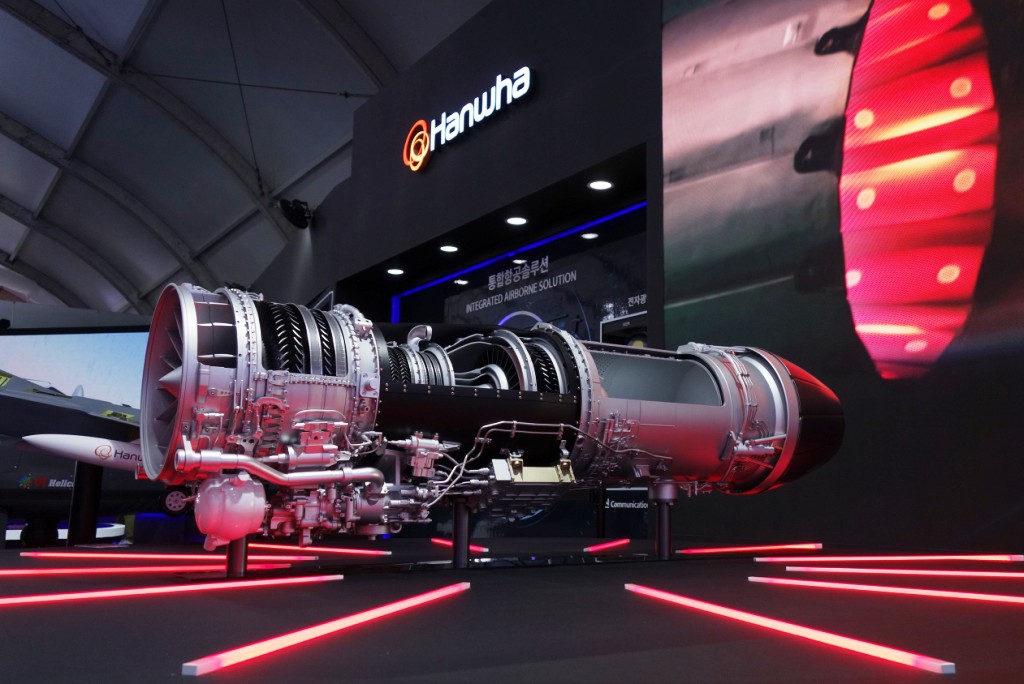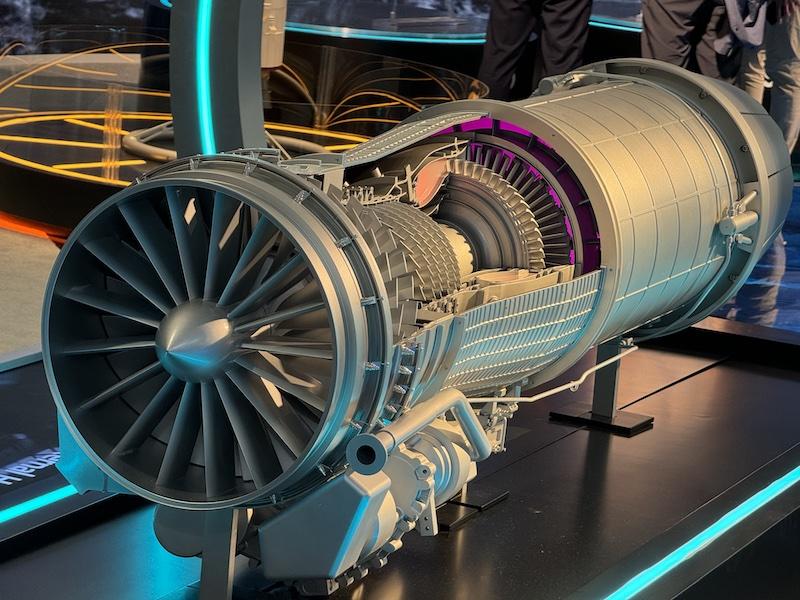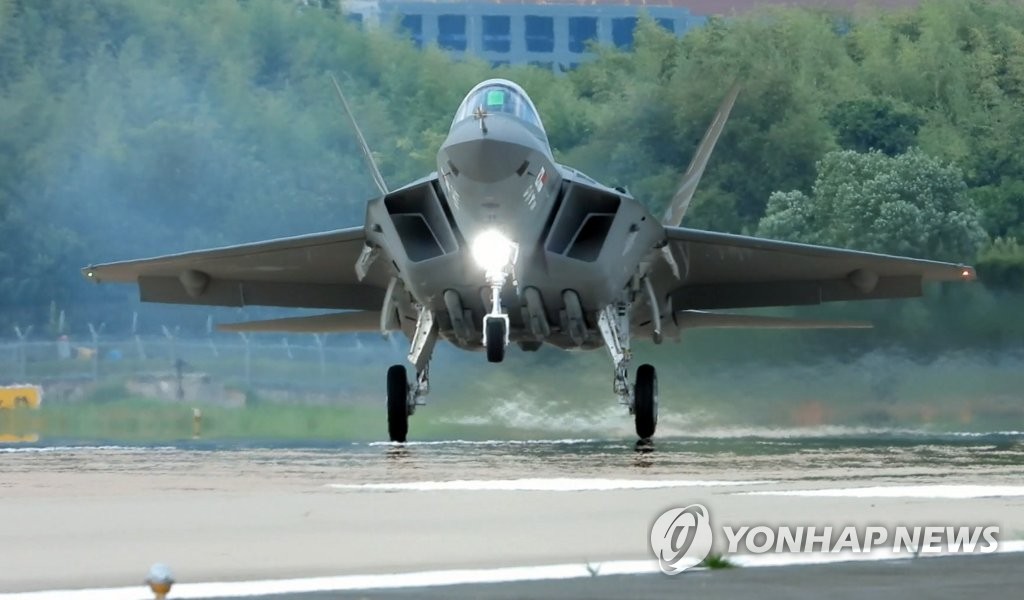In 10 Years, South Korea’s KF-21 “Boramae” Fighter Jets to Use Locally-Developed Engines
At the recent Farnborough Airshow 2024, South Korean company Hanwha Aerospace unveiled its self-developed aircraft engine prototype, which is set to be used in the country's next-generation 4.5 fighter jet, the KF-21 "Boramae".
(DEFENCE SECURITY ASIA) — At the recent Farnborough Airshow 2024, South Korean company Hanwha Aerospace unveiled its self-developed aircraft engine prototype, which is set to be used in the country’s next-generation 4.5 fighter jet, the KF-21 “Boramae”.
In addition to the KF-21, the engine developed by Hanwha Aerospace is also planned for use in unmanned aircraft being developed by South Korean defense companies.
The emergence of the self-developed fighter jet engine by Hanwha Aerospace demonstrates the advancements of the East Asian nation’s defense industry, solidifying its position as the fourth-largest arms exporter in the world.
“Our fighter jet engine will have the same dimensions as the F414-GE-400 engine developed by General Electric but will offer superior performance,” stated a senior official from Hanwha Aerospace at the recent airshow in the United Kingdom.
However, the KF-21 fighter jets, which are in the final stages of development, will continue to use the GE-produced F414-GE-400 engines for the next decade until Hanwha Aerospace’s engine is capable of replacing them in South Korean-made fighter jets.

The F414-GE-400 engine by General Electric is used in aircraft such as the F-18 Hornet and other fighter jets, including the FA-50 developed by Korea Aerospace Industries (KAI).
Concurrently, Hanwha Aerospace is also manufacturing the GE-produced F414-GE-400 engine under license in South Korea.
Recently, Hanwha Aerospace signed a contract to supply 40 units of the General Electric F414-GE-400 engine for the first batch of 20 KF-21 fighter jets.
The first engine will be produced by 2025 from the company’s factory in Changwon.
The locally developed aircraft engine by Hanwha Aerospace reportedly features a six-stage compressor and offers a thrust range between 15,000 and 18,000 pounds, with afterburner usage boosting thrust up to 24,000 pounds.
The South Korean company official also noted that the core technology for this engine could also be utilized for the development of engines for warships.

The first KF-21 prototype successfully completed its maiden flight in 2022 and has since embarked on approximately 2,000 test flights to evaluate various systems and components.
KAI will produce the first batch of 20 KF-21 “Boramae” 4.5-generation fighter jets, enabling the aircraft to operate for the Republic of Korea Air Force (ROKAF) by 2026.
The construction contract for the 20 KF-21 Block 10 fighter jets, valued at USD 1.41 billion (RM 6.65 billion), was recently signed between KAI and South Korea’s Defense Acquisition Program Administration (DAPA).
“Under the agreement, KAI will produce 20 units of the fighter jets and provide logistical support, technical manuals, and training. The fighter jets will serve ROKAF by the end of 2026,” reported South Korean media.
The KF-21 fighter jet development program is reported to be 80 percent complete at this stage. Launched in 2015, the KF-21 development program is estimated to cost USD 6.59 billion (RM 26.36 billion).
KAI plans to supply 20 KF-21 Block 1 fighter jets designed for air-to-air missions by 2026, followed by 80 Block 2 jets for air-to-ground missions in the next phase.

The South Korean aerospace giant also aims to begin exporting the KF-21 “Boramae” fighter jets to interested customers.
KAI has already targeted several countries as potential customers for the KF-21 fighter jet, particularly those that have used the FA-50/T-50 light fighter jets, such as Thailand, the Philippines, Iraq, Poland, and Malaysia.
With an estimated unit price of USD 65 million (RM 306 million), as reported by international defense media, the price of the KF-21 (possibly Block 10) is lower compared to other 4.5-generation aircraft like the Rafale and the Eurofighter Typhoon. — DSA



Comments are closed.